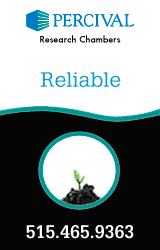Poll Shows Canadians Overwhelming Support Energy-from-Waste
The Canadian energy-from-waste (EFW) market has shown robust potential over the past eight (8) years, growing by 200%, from just four (4) operating plants in 2006 to twelve (12) facilities in an advanced stage of approval or construction by summer 2014.
Moreover, the trend toward EFW technologies is a national phenomenon, with a range of plants and equipment under consideration from Prince Edward Island to Vancouver Island. The trend continues independent of size, with investigations underway in communities as diverse as Port Hope, Ontario and Vancouver, British Columbia.
This progressive approach to waste management and local energy generation makes Canada a world leader. Of course, there are not as many installations as Europe (300+) or the US (80+), but the growth curve is notably more dynamic.
Undertaken by Nielsen in spring 2014, the poll included 1,044 respondents from across the country, with a +/- 3% margin of error 19 times out of 20. The poll clearly shows that two thirds (2/3) of Canadians hold a favourable opinion of EFW technologies. Across the EFW technologies, gasification received most positive support at 60%, followed by feedstock recycling and solid recovery fuel. Even mass burn combustion achieved 50% support.
Moreover, EFW as an energy source merits a higher overall impression than other power sources. EFW was seen in a favourable light by 69% of Canadians, while natural gas trailed at 59%, with oil at 37%, nuclear at 34%, and coal at just 19%. Only solar (90%) and wind (75%) ranked higher.
When it comes to feedstock, an overwhelming 90% of Canadians prefer that non-recyclable plastics go to an EFW facility rather than landfill. This support holds steady across both geography, ranging from a “low” of 85% in Quebec, rising to 87% in BC, 88% in Alberta, 90% in Ontario, 92% in Atlantic Canada, and 94% in Manitoba and Saskatchewan.
Treating non-recyclable plastics in an EFW plant has solid support in all age groups, ranging from a “low” of 86% among the 65+ set to 94% among those aged 55-64. Eighty-nine percent (89%) of young people (ages 18-34) see EFW as a preferred option.
Additionally, there is solid support for EFW from both sexes. Women are more likely than men to say they would prefer non-recyclable plastics go to an EFW facility, with 86% support among men and 92% among women.
Canadians also understand that these strong opinions come with consequences. Sixty-three percent (63%) of respondents indicated they would support the use of EFW in their immediate community, which shows considerable commitment to the technology. It is worth noting that in most cases this level of support is higher than voter turnout in four of the last five federal elections. It is also higher than the plurality achieved by almost any politician in the country since Confederation.
Canadian Resource Recovery Council
www.resourcerecovery.ca










